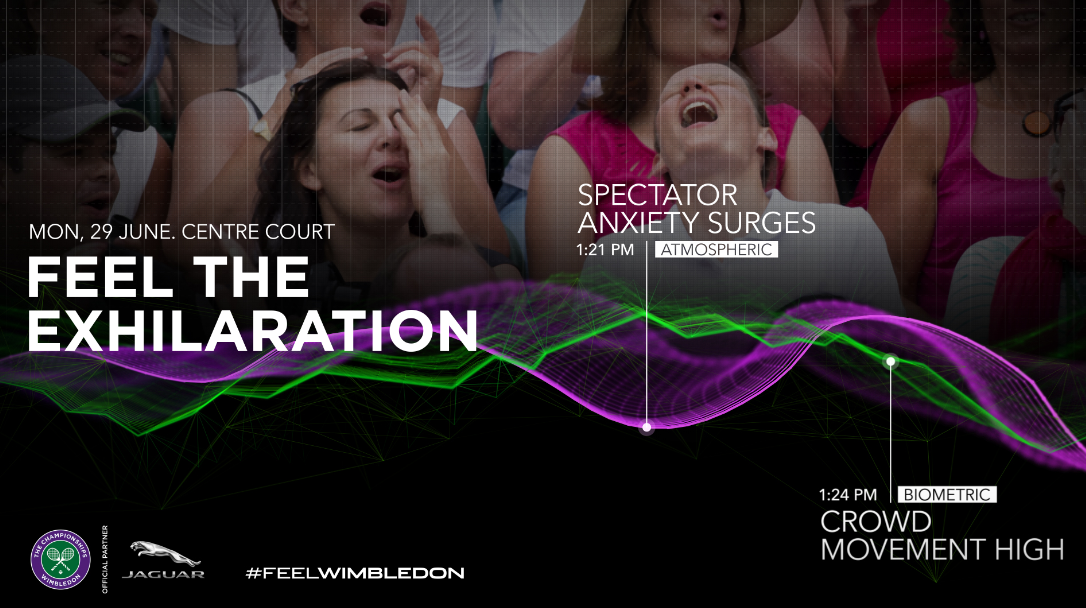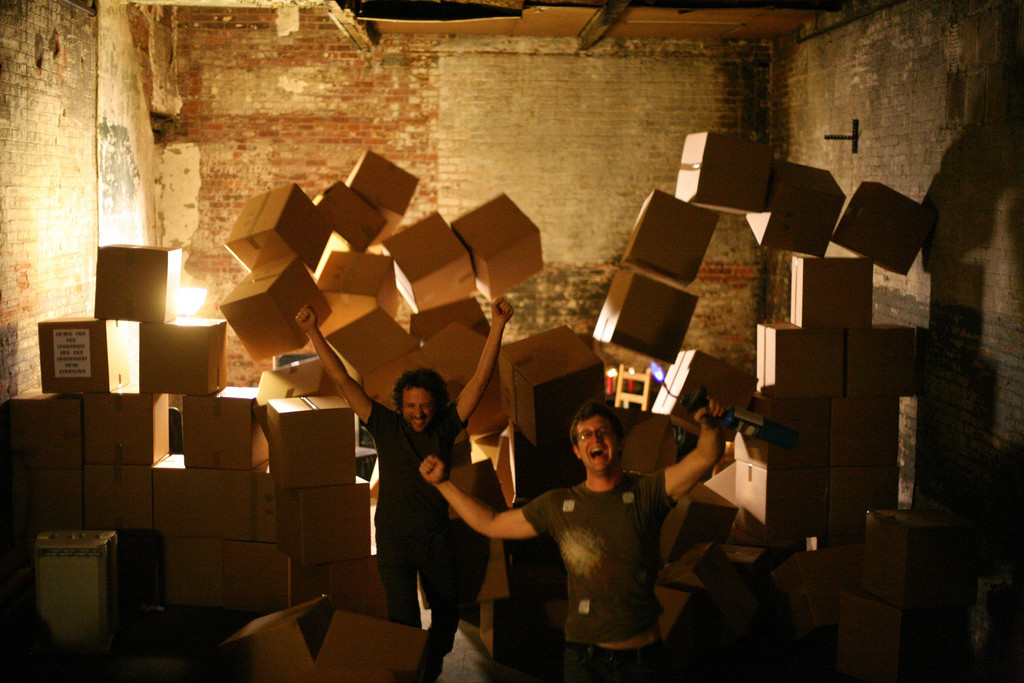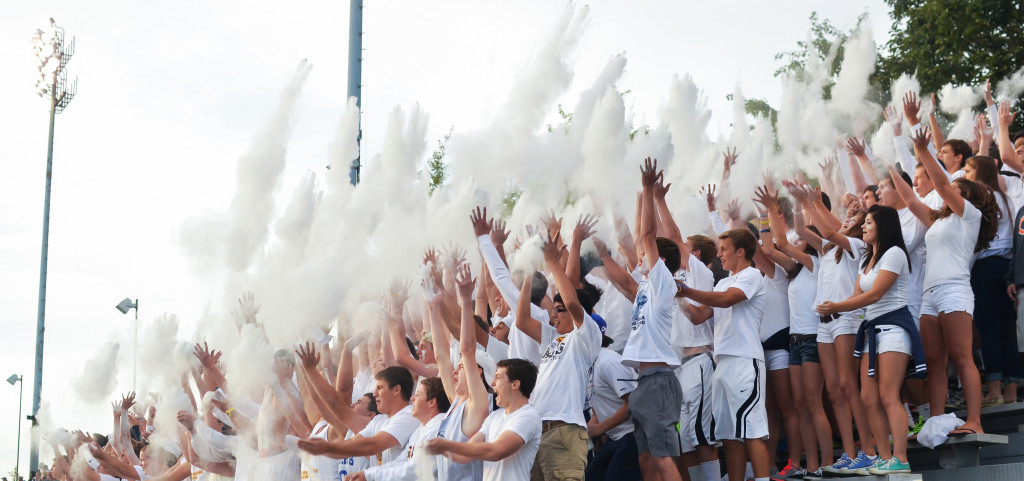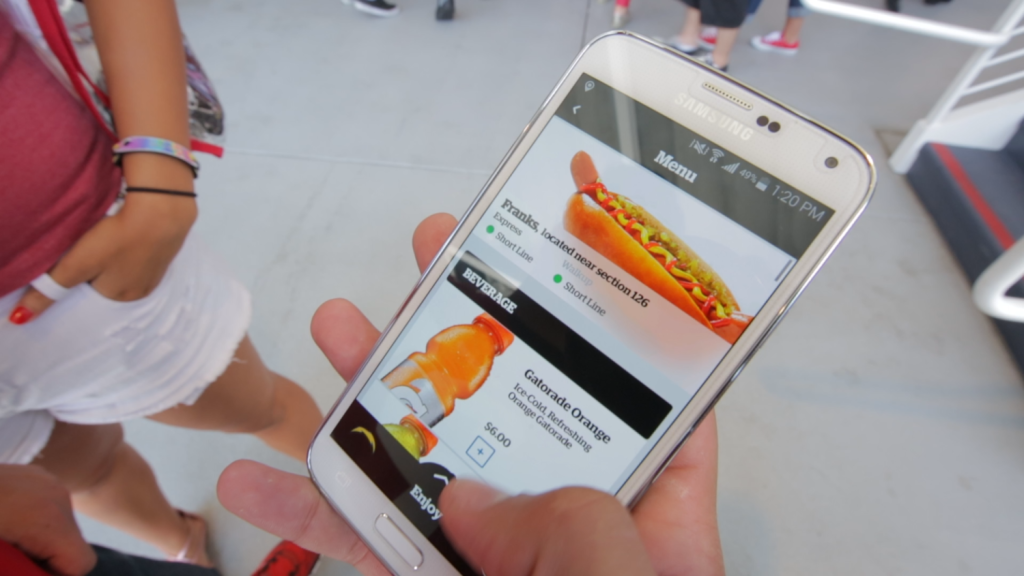Wristband Wearables at Wimbledon
Wimbledon has begun and with it some biometric measurements from fans.
Luxury car maker Jaguar is the official car sponsor of the tournament and it gave fans wearables and installed court sensors to measure moods, emotions, heart rates, and movements. The company is sending out the results via Facebook, Twitter, and Instagram using the hashtag #FeelWimbledon. You can also view the results online.
“There’s no other tournament like Wimbledon and the experience gets better each year,” pro tennis player Tim Henman said in a statement. “The drama, passion and excitement, shared by both players and fans alike, is what makes Wimbledon the No. 1 tennis tournament in the world, and it’s great to see Jaguar celebrating these unique qualities as part of their #FeelWimbledon campaign.”
The effort is also a way to celebrate products.
“With 500,000 people attending Wimbledon this year, it provides Jaguar with incredible exposure in London, and a fantastic platform to showcase our products, especially the Jaguar XE,” said Laura Schwab, UK marketing director at Jaguar Land Rover, in a statement.
30|UNDER|30 Spotlights: Doyle, Giordano, Loyst, and Ruach
We continue with spotlighting recipients in the IAVM Foundation’s inaugural class of 30|UNDER|30. This time, we feature four from the class and ask them, “What influenced you to get involved in the venue industry?”
 Laura Doyle
Laura Doyle
Guest Relations and Event Security Manager
SMG – Chesapeake Energy Arena & Cox Convention Center
Oklahoma City, Oklahoma
“When I was growing up, I wanted to be the quarterback for the Washington Redskins. When I was a little older, I realized that probably wasn’t going to happen, so I set out to find another way to get involved in sports. I decided to go to the University of South Carolina, where I studied sport and entertainment management. I had the opportunity to really get into the venue focused side of it. I learned from some really great professors, had mentors there, and I got to see more about how events are run and how buildings are run.”
 Joe Giordano, Jr.
Joe Giordano, Jr.
Booking and Marketing Manager
SMG – Santander Arena and Santander Performing Arts Center
Reading, Pennsylvania
“From the time I was very little, I remember my mom was the kind who always wanted to be involved in every event or fundraiser that happened in my town. She always took each event to the next level with her creativity to ensure everybody was happy. No matter how much time it took her—or how much floor space it took in my house—she always made sure every detail was wrapped up. I loved seeing the hard work translate to what it did for the patrons who attended those events. I always wanted to work in an event-driven industry where the ultimate goal is to make people happy and create lifelong memories. For that, I can thank my mom.”
 Sean Loyst
Sean Loyst
Assistant Supervisor, Events and Guest Services
Kitchener Memorial Auditorium
Kitchener, Ontario
“The reason I got involved with the venue industry is because I studied sports and entertainment, majoring in sport management. I also volunteer my time quite a bit with minor pro hockey, as well as coaching minor league hockey. Just being around an arena a lot of the time really helped me focus my intentions on getting into the venue industry.”
 Alicia Ruach
Alicia Ruach
Event Operations Coordinator
Maple Leaf Sports & Entertainment Ltd.
Toronto, Ontario
“As a lifelong sports fan and competitive athlete, I was naturally drawn to an industry that would keep me in the game. What I have discovered, much to my delight, is that my passions, skills, and success on the soccer pitch could translate to producing winning events. My first big test came two years ago as the game operations and events coordinator at BMO Field for Toronto FC, our city’s Major League Soccer team. Right out of the gate, I was on the field directing the ceremonial pre-game march onto the pitch, which included not only players and officials but more than 100 kids, some as young as five-years-old. It was a blast, punctuated by an explosion of fireworks.”
Serving the Young Professional Kool-Aid
I graduated college in 2005 and was lucky enough to get a gig at Strathmore, an arts complex in Bethesda, Maryland, where I had interned the year prior. I’m certain I bombed the interview. They still poke fun at me about how I was expecting to have “more time to play video games” now that I was out of the college grind. WHAT A MORON! I guess I was lucky enough to have the other, more interview-ready competition get other job offers. I still remember the offer call. You ready for this? I accepted under the condition that I could have my already scheduled beach week one week after I was to start. ARE YOU KIDDING ME?!?!?!! If I was my boss, I not only would have laughed on the other end of the phone, I would have retracted the offer. Yet I think he was desperate. Yup. He must have been because he agreed. He never let me forget that either…but I still had a job. So far so good.
As a communications and music double major, I didn’t have the foggiest idea of what venue management entailed, and as Strathmore had just opened a new concert hall, there wasn’t a whole lot of past practice for me to learn from. I made my way…somehow…and went from a glorified paper-pusher to operations manager after about 16 months. I think at the time, my only real qualifications were that I managed to not get lost in the building and didn’t get anyone killed.
Shortly after the promotion, I was told that I was signed up for IAAM. Boy was I stoked for the new magazine subscription! When I got my first issue and started to look at the pictures (I’m not much for words), I realized what I really had been given—an opportunity to right all my previous bone-headed, immature, wrongs and actually learn how to be a venue manager. I jumped at the opportunity.
I read each FM issue from cover to cover. I remember the day I saw the ad for the Mentoring Program. I was 23 and living in my mom’s basement and it said “free” so sign me up! The experience got me in touch with a wonderful mentor, Terry Genovese, CFE, who I will never forget for the advice, the connections, and the opportunities she afforded me. She encouraged me to apply for PAFMS (now Venue Management School). She called ahead to industry pillars like John Siehl, CFE, and Adina Erwin to warn….I mean…let them know that a rookie who she was humoring as a mentee was headed their way and to try not to let me do anything stupid. They took time to seek me out, introduce themselves, and offered their support in finding my niche. After that week in Oglebay, I think I knew this was in my blood. From that moment on I was drinking the Kool-Aid and preaching the gospel to anyone who would listen.
A few years ago I heard a taskforce was being assembled to promote and add value to the Young Professionals membership; I immediately threw my hat in the ring to be a part of it. Now as the chair of the soon-to-be Young Professionals Committee (read—“HERE TO STAY!!”), I couldn’t be happier to be in the position to help younger folks to utilize what IAAM, now IAVM, has to offer to the future of this industry. I owe my livelihood to getting that first chance at employment and then working every last ounce of opportunity I could out of that “magazine subscription” called the International Association of Venue Managers.
If you’ve read this far (thanks for that btw), I ask two things, 1: If you are still early in your career in this crazy industry we love so much, reach out to me or anyone involved in the Young Professional Committee, Mentoring Program, or Universities Committee as soon as you can. We’ll find you some way to get involved, and we’ll drop what we’re doing to give you the guidance and resources that so many of us benefited from. And 2: If you have the opportunity to recognize staff or students in your organization that just might need a taste of what IAVM has to offer, get them to us. Let us speak in you classrooms, or send them to us for a shadow experience or internship. The future VMS instructors, committee chairs, and mentors of this industry need to start their journeys today!
To put a spin on a famous Jack Nicholson quote: “We want you on that wall…We need you on that wall.”
If I managed to make something of myself through IAVM, anyone can. Help me make some more Kool-Aid, and if you’re thirsty, we’re serving!
Hope to see everyone in Baltimore!
(Image: Bre Pettis/Creative Commons)
Students Sound Off on Game Attendance
The National Association of Collegiate Marketing Administrators (NACMA) and the Warsaw Sports Marketing Center at the University of Oregon recently conducted a study to discover how to get students into stadiums and keep them there until the event is over.
“It’s definitely a huge concern to capture their attention and get them to games while they’re in school because once you lose them, it’s that much harder to increase that fandom,” lead investigator Andrew Guerra to USA Today. “You can get fans there but if they’re not engaged in the game, not only does it deplete the fan experience but it depletes the home-field advantage that these teams have.”
The report, “Student Attendance at Collegiate Sporting Events,” used survey data from 18,876 students at schools in 32 conferences and focused on attendance at football and men’s basketball games. Study participants were asked what influences them to attends games, viewing preferences, and social media habits, among others.
Some of the key findings from the USA Today story include
— Average student affinity was 7.1 out of 10, with 81 percent of students attending at least one live sporting event.
— Interest in the sport, game time, ticket price, opponent, and team record were the most influential in students’ determination whether to attend a sporting event.
— Students indicated their favorite parts of the game-day experience were watching live game action (23 percent), in-stadium atmosphere (17 percent) and tailgating (15 percent). Of overall respondents, 28 percent chose stadium and concession food as the most enjoyable part of attending home games, with that option ranking first among Power Five and FBS schools.
— Of students who follow the team on Facebook, 72 percent attended three or more home football games. Of those who didn’t, 44 percent attended three or more games. Facebook followers of teams were 63 percent more likely to attend three or more home games than students who didn’t follow the team on Facebook, and that trend held for other social media. Twitter (61 percent), Snapchat (47 percent), and Instagram (48 percent) made students more likely to attend three or more home games.
— Students who said Wi-Fi connectivity was not important in their decision to attend games did so at a higher rate than students who said it was.
— Although 67 percent of students agreed watching games is “more comfortable at home,” it scored lower than 2.5 on a scale of 5 on how likely it would be to prevent game attendance.
— Personal errands, hanging out with friends and family, and using the Internet were the biggest competing interests in deciding whether students attended three or more games.
— Nearly a quarter of respondents reported leaving before a game is 75 percent complete. Potential incentives for them to stay for the entire game included free T-shirts, a sponsored post-game party, loyalty points, and concession discounts, in that order. Loyalty points and meet and greets with players yielded the strongest results.
Check out our article, “How to Increase Student Attendance at Games” for more ideas on this subject.
(Image: Erik Drost/Creative Commons)
Twitter and Live Nation Entertainment Invest in VenueNext
The mobile app VenueNext has raised $9 million in Series A financing from Causeway Media Partners with participation from Live Nation Entertainment, Twitter, Aruba Networks, and others.
The technology made its debut during the San Francisco 49ers season this past year at Levi’s Stadium. The platform, according to a release from the company, has the ability to tie together isolated venue systems such as location services, ticketing, points of sale and concessionaire services to help venue operators make real-time, data-driven decisions, and then seamlessly surface these through a context-aware mobile app.
“The investment in VenueNext seems to imply Twitter may want to get involved with other aspects of live events, too, like ticket sales or concessions or merchandise,” Kurt Wagner wrote on Re/code. “Imagine getting an exclusive offer on Twitter for a T-shirt, which is then delivered to your seat. Or tweeting somebody a beer at an NFL game. Twitter is starting to expand its commerce offerings beyond the occasional ‘buy’ button that appears in your feed, and this is another way it might do that.”
There were some impressive results with the app at Levi’s Stadium in 2014. For example, the venue reduced its food and beverage costs by 5 percent through better inventory management; it sold more than $1.25 million in mobile in-app purchases of food, beverage, merchandise, and parking; and it expanded its unique visitor database from 17,000 to more than 200,000.
“It has been an exciting run since September, where we have received unprecedented interest from all types of venues globally, from live sporting and entertainment event locations, to hotels, transit centers and theme parks,” said John Paul, CEO and founder at VenueNext, in a statement. “The market is ready for what we are offering, and we will use the funds to expand the team and deploy our proven approach to unifying systems at over 30 different types of venues alone in 2015.”
(Image: VenueNext)
Do you want to receive a Front Row News weekly digest?
Categories
- Allied (861)
- Architecture (147)
- Arenas (750)
- Career (897)
- Convention Centers (897)
- Education (623)
- Events (1,544)
- Food & Beverage (193)
- Foundation (113)
- Guest Experience (1,497)
- Industry News (2,270)
- Leadership (1,888)
- Marketing (150)
- Membership (2,001)
- Music (213)
- Performing Arts Centers (456)
- Professional Development (409)
- Research (128)
- Safety & Security (442)
- Sports (764)
- Stadiums (611)
- Student (159)
- Technology (516)
- Ticketing (92)
- Touring (82)
- Trends (365)
- Uncategorized (691)
- Universities (218)
- Video (25)
- Young Professional (198)
Twitter Feed
- Twitter feed loading
Recent Posts
- Register Today for the 2025 AIPC/CCC/IAVM Academy
- The Raleigh Convention Center Announces New Director of Marketing and Sponsorships
- Texas FFA Awards Fort Worth Hospitality Team with Honorary Lonestar Degrees
- VenuWorks Diversifies Portfolio to Include More Amateur Sports Complexes
- Monumental Sports & Entertainment Launches ‘Building Momentum’ — A Content Series Chronicling the Transformation of the Brand-New Arena
Categories
- Allied
- Architecture
- Arenas
- Career
- Convention Centers
- Education
- Events
- Food & Beverage
- Foundation
- Guest Experience
- Industry News
- Leadership
- Marketing
- Membership
- Music
- Performing Arts Centers
- Professional Development
- Research
- Safety & Security
- Sports
- Stadiums
- Student
- Technology
- Ticketing
- Touring
- Trends
- Uncategorized
- Universities
- Video
- Young Professional
Archives
- August 2025
- July 2025
- June 2025
- May 2025
- April 2025
- March 2025
- February 2025
- January 2025
- December 2024
- November 2024
- October 2024
- September 2024
- August 2024
- July 2024
- June 2024
- May 2024
- April 2024
- March 2024
- February 2024
- January 2024
- December 2023
- November 2023
- October 2023
- September 2023
- August 2023
- July 2023
- June 2023
- May 2023
- April 2023
- March 2023
- February 2023
- January 2023
- December 2022
- November 2022
- October 2022
- September 2022
- August 2022
- July 2022
- June 2022
- May 2022
- April 2022
- March 2022
- February 2022
- January 2022
- December 2021
- November 2021
- October 2021
- September 2021
- August 2021
- July 2021
- June 2021
- May 2021
- April 2021
- March 2021
- February 2021
- January 2021
- December 2020
- November 2020
- October 2020
- September 2020
- August 2020
- July 2020
- June 2020
- May 2020
- April 2020
- March 2020
- February 2020
- January 2020
- December 2019
- November 2019
- October 2019
- September 2019
- August 2019
- July 2019
- June 2019
- May 2019
- April 2019
- March 2019
- February 2019
- January 2019
- December 2018
- November 2018
- October 2018
- September 2018
- August 2018
- July 2018
- June 2018
- May 2018
- April 2018
- March 2018
- February 2018
- January 2018
- December 2017
- November 2017
- October 2017
- September 2017
- August 2017
- July 2017
- June 2017
- May 2017
- April 2017
- March 2017
- February 2017
- January 2017
- December 2016
- November 2016
- October 2016
- September 2016
- August 2016
- July 2016
- June 2016
- May 2016
- April 2016
- March 2016
- February 2016
- January 2016
- December 2015
- November 2015
- October 2015
- September 2015
- August 2015
- July 2015
- June 2015
- May 2015
- April 2015
- March 2015
- February 2015
- January 2015
- December 2014
- November 2014
- October 2014
- September 2014
- August 2014
- July 2014
- June 2014
- May 2014
- April 2014
- March 2014
- February 2014
- January 2014
- December 2013
- November 2013
- October 2013
- September 2013
- August 2013
- July 2013
- June 2013
- May 2013
- April 2013
- March 2013
- February 2013
- January 2013
- May 2012
- March 2012
- December 2011
- November 2011
- October 2011
Recent Comments
- Frank Bradshaw, Ph.D., CVE on John Meyer, CVE, a Tireless Advocate of Certification for Venue Professionals, Has Died
- Neil Sulkes on Hilary Hartung, Friend to Many in Venue Marketing, Has Left Us
- Jason Parker, CVE on The Devastation of Hurricane Helene and How We Can Support One Another
- Larry Perkins on Touhey Testifies Against Speculative Ticketing Before Congressional Subcommittee
- Peter Secord on Major Players for Planned Elkhart Amphitheater Were in the Mix at VenueConnect





